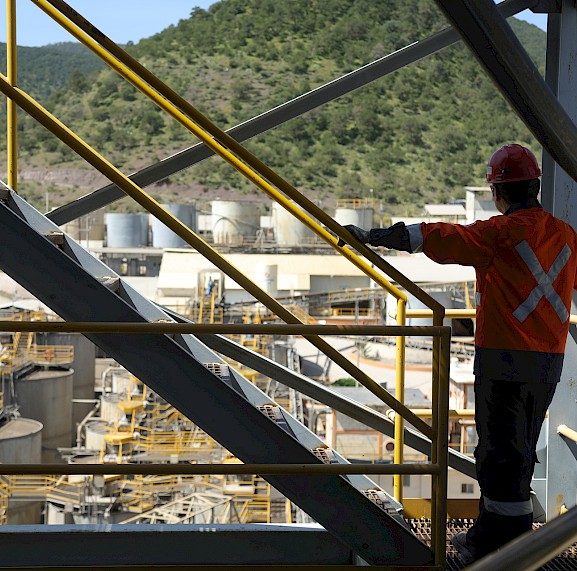-
Sustentabilidad:
Protecting the planet is one of the three pillars of Endeavour Silver’s 2022-2024 Sustainability Strategy. Through the strategy, we are elevating our environmental stewardship to reduce negative impacts, protect ecosystems and support environmental sustainability.
Managing and mitigating our carbon footprint is part of our overall approach to environmental stewardship. We are dedicated to better understanding the risks, impacts and opportunities presented by a changing climate, and taking decisive steps to support a cleaner, greener economy.
In our 2022-2024 Sustainability Strategy, we set out a clear priority to mobilize action towards a low-carbon economy, including by minimizing our production of direct and indirect GHG emissions. This ties directly to our Company mission to find, build and operate quality silver mines in a sustainable way, and create value for all stakeholders.

Energy consumption represents our largest carbon impact. Our two main energy uses at our operations are electricity and fuel for transport. Stationary energy is comprised of purchased electricity from the grid at Bolañitos and Guanacevi, use of generators at Terronera, diesel fuel for vehicles, and natural gas for the smelting furnaces at Guanaceví.
We’re focused on reducing energy consumption and the emissions intensity of our operating sites (direct and indirect) through conservation and eco-efficiency initiatives. In line with ISO 14001 guidelines, we have developed an Environmental Management System, which includes environmental monitoring systems and controls at each site. Our maintenance teams monitor and look for opportunities to streamline electricity consumption. They review efficiencies to determine the capacity needed for the equipment in order to optimize electricity use. We also work with our contracted trucking companies to ensure efficient transport management; for example, by carrying the highest allowable loads and reducing the number of trips.
We are currently working to define specific and measurable climate change targets for our Company. While we set broad climate-related targets in our 2022-2024 Sustainability Strategy (e.g., ‘minimize emissions intensity of operating sites’), additional work is needed to establish more concrete, quantitative targets in order to accelerate and gauge our progress. Our aim is to set targets that are meaningful and achievable.

Our climate-related disclosure is a key component of our sustainability reporting. Since 2013, we have tracked and reported greenhouse gas (GHG) emissions for all our operations, which allows us to continually identify areas for improvement. We monitor both direct (Scope 1) and indirect (Scope 2) emissions. The ESG Performance Tables on our website provide metrics for the past three years. The GHG emissions of our Guanacevi operation are subject to external verification since they are above the Mexican regulatory threshold of 25,000 tons eCO2.
In March 2023, we launched our first standalone climate report, "Our Climate Journey." The report highlights our approach to climate change and aligns with the recommendations of the Task Force on Climate-related Financial Disclosures (TCFD), providing specific climate-related information in four areas: governance, strategy, risk management, and metrics and targets.
Silver: Critical to a Low-Carbon Economy
We also view climate change beyond risk. There are also great opportunities that exist. In addition to silvers’ use as a store for wealth and other industrial purposes, silver as considered critical for a cleaner, greener future and the “race to net zero”. Mining companies like Endeavour will be relied upon to deliver this essential metal needed to support solar panels, battery cell-based electric vehicles and other environmental innovations that underpin a more sustainable economy.

© 2024 Endeavour Silver Corp.
All rights reserved.

